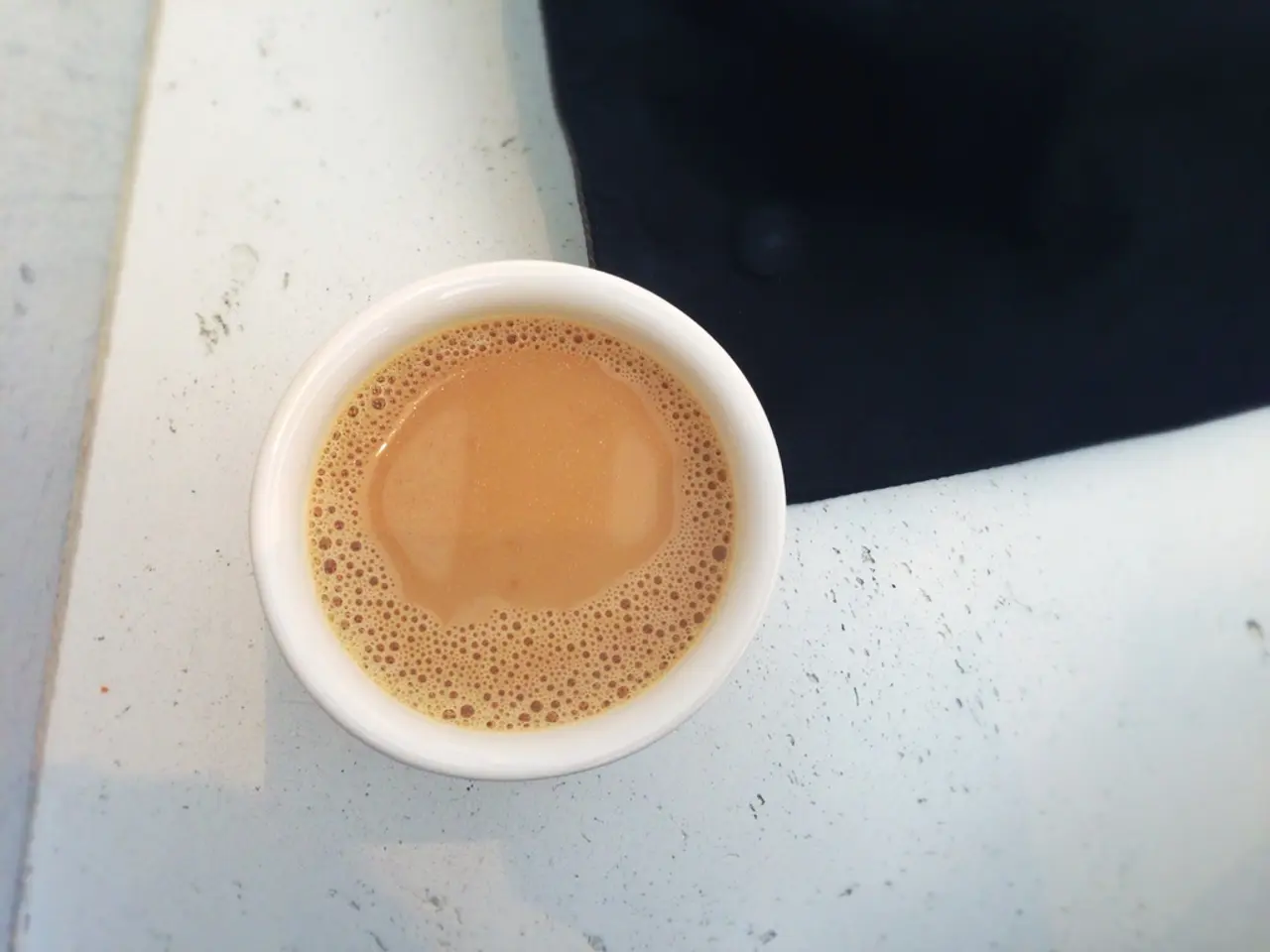Diabetes and Tea Variants: Associated Risks, Consequences, and Advantages
True teas and herbal infusions, both popular beverages, offer a variety of health benefits, particularly in relation to blood sugar regulation.
Origin
True teas, exclusive to the Camellia sinensis plant, encompass varieties like black, green, oolong, and white teas. On the other hand, herbal infusions, or herbal teas/tisanes, are concocted from diverse plant parts such as herbs, flowers, roots, seeds, or spices, excluding Camellia sinensis. Examples include chamomile, rooibos, hibiscus, and ginger.
Composition
True teas contain caffeine, polyphenols like catechins, and specific antioxidants derived from Camellia sinensis leaves. These compounds can influence metabolism and insulin sensitivity. Herbal infusions, however, typically lack caffeine and have unique bioactive compounds depending on their ingredients, such as antioxidants, essential oils, anti-inflammatory agents, and vitamins.
Health Benefits for Blood Sugar Regulation
True teas, especially green and oolong, have been studied for their potential to improve insulin sensitivity and blood glucose control through their catechins and other polyphenols. Herbal infusions used for blood sugar management often comprise blends of multiple herbs traditionally used in natural medicine, targeting metabolic balance, inflammation reduction, and insulin resistance.
A Closer Look at Some Popular Options
- Black tea has been found to help manage blood sugar levels, and hibiscus may aid in lowering blood sugar levels, boosting insulin production, and reducing insulin resistance.
- Chamomile has a positive effect on fasting blood sugar and hemoglobin A1C levels.
- Cinnamon tea may help reduce blood sugar levels, although the overall benefits on blood sugar in people with type 2 diabetes are inconclusive.
- Turmeric, rich in the active ingredient curcumin, has been shown to reduce blood glucose levels in individuals with type 2 diabetes, prediabetes, and metabolic syndrome.
Caution with Sweetened Beverages
Unsweetened tea does not typically raise blood sugar significantly, but adding sugar or honey to a cup of tea may lead to a spike in blood sugar levels. People who are managing their blood sugar should be mindful of any sweet additions to their tea. Moreover, packaged tea and herbal infusion products may contain added sugars, so it is essential to check the ingredients.
Additional Considerations
Some studies have investigated the effect of essential oils like lemon balm on blood sugar and antioxidant activity, finding potential benefits for individuals with diabetes. Additionally, herbs such as ginger, lemongrass, safflower, and jasmine have been linked to various health benefits, including anti-inflammatory, antitumor, cardioprotective, antioxidant, and stress-reducing properties.
However, it is crucial to remember that while these beverages and essential oils may offer potential health benefits, they should not replace proper medical care and management for individuals with diabetes. Always consult with a healthcare professional before making any significant changes to your diet or supplement regimen.
Conclusion
True teas and herbal infusions offer a range of health benefits, particularly in relation to blood sugar regulation. By understanding the composition and unique benefits of each option, individuals can make informed decisions about their beverage choices to support their overall health and well-being.
- Some naive consumers might believe that adding sugar or honey to a cup of tea would not significantly raise blood sugar levels, but it's essential to be mindful of these sweet additions, particularly for those managing chronic diseases like diabetes.
- Science has shown that herbs such as turmeric, rich in curcumin, may help reduce blood glucose levels in people with type 2 diabetes, prediabetes, and metabolic syndrome.
- Type-2 diabetes is a chronic medical-condition that requires constant care, and while true teas and herbal infusions can offer health benefits, including improved blood sugar regulation, they should not replace proper medical treatment and management.
- Fitness and exercise go hand in hand with nutrition when it comes to managing type-2 diabetes, and essential oils like lemon balm have been found to potentially offer benefits for blood sugar and antioxidant activity, but more research is needed.
- Medical professionals and healthcare experts recommend focusing on nutrition, fitness, and exercise as key components of health and wellness for those living with chronic diseases like diabetes and Type-2 diabetes.
- Tea lovers can take advantage of the health benefits of true teas and herbal infusions, such as green tea, oolong, hibiscus, chamomile, cinnamon, and turmeric, for the regulation of hyperglycemia and occasional inflammation reduction, as part of a balanced fitness-and-exercise and nutrition lifestyle.




